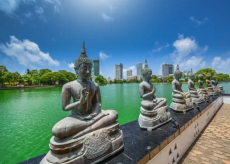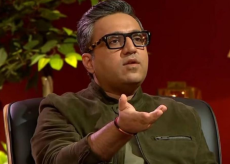Tamil Nadu’s Online Gaming Ban Sparks Legal Battle: Pro Gamers Fight for Their Livelihood
Prepend to the content

The Esports Players Welfare Association (EPWA), along with top professional gamers from Tamil Nadu, has filed a petition against the newly introduced Tamil Nadu Regulations on Real Money Gaming, 2025 in the Tamil Nadu High Court. The petition challenges the regulations, claiming they violate constitutional rights and threaten the livelihoods of professional gamers.
The EPWA argues that the regulations infringe upon articles 14, 19, and 21 of the Indian Constitution, impacting the gaming community’s right to livelihood. The association contends that states lack the authority to regulate skill-based games, which fall under the purview of the central government per the Information Technology (Intermediary Guidelines and Digital Media Ethics Code) Rules, 2021. They also claim the regulations rely on flawed data.
Impact on Professional Gamers and Competitive Integrity
A significant concern is the ban on online gaming between 12:00 AM and 5:00 AM. Gamers argue that these hours are peak times for international competitions and post-work gaming for office-goers.
EPWA represents a diverse community, including notable names like Vikram Kumar Lungi, winner of the 2017 Asian Poker Tour (APT) Hyperturbo Championship, and PS Rathnavel, one of India’s youngest Chess Grandmasters. Aditya Sushanth Donka, a World Series of Poker (WSOP) bracelet winner, also joined the petition.
Vikram Kumar Lungi expressed frustration, stating, “Just because we are in Tamil Nadu, we are being given step-motherly treatment. Gaming is my profession, and I cannot afford to have my work dictated by outdated policies.”
PS Rathnavel highlighted the global nature of competition, saying, “Restricting us from playing at night is like telling an athlete they can’t train during peak competition hours—it makes no sense.”
Aditya Sushanth Donka emphasized the impact on office-goers: “Many players return home late and play serious poker after work. If these laws stay, Tamil Nadu will be the only place where playing at night is illegal. That’s not how professional gaming works.”
The State of India Gaming Report 2022, a study by Lumikai and Amazon Web Services (AWS), reported that the number of esports players in India grew from 150,000 in 2021 to 600,000 in 2022. The report predicts this number will reach 1.5 million by 2027, reflecting the industry’s rapid growth.
EPWA’s challenge is based on three grounds:
Right to Livelihood:
The ban curtails the ability of professional gamers to earn a living.
Competitive Integrity:
Late-night restrictions limit access to global competitions.
Arbitrary Restrictions:
The assumption about sleeping hours ignores the realities of professional gaming.
The gaming community remains firm in its commitment to ensuring the regulations do not undermine India’s presence in the global esports and real-money gaming industries.
The post Tamil Nadu’s Online Gaming Ban Sparks Legal Battle: Pro Gamers Fight for Their Livelihood appeared first on G2G News.



